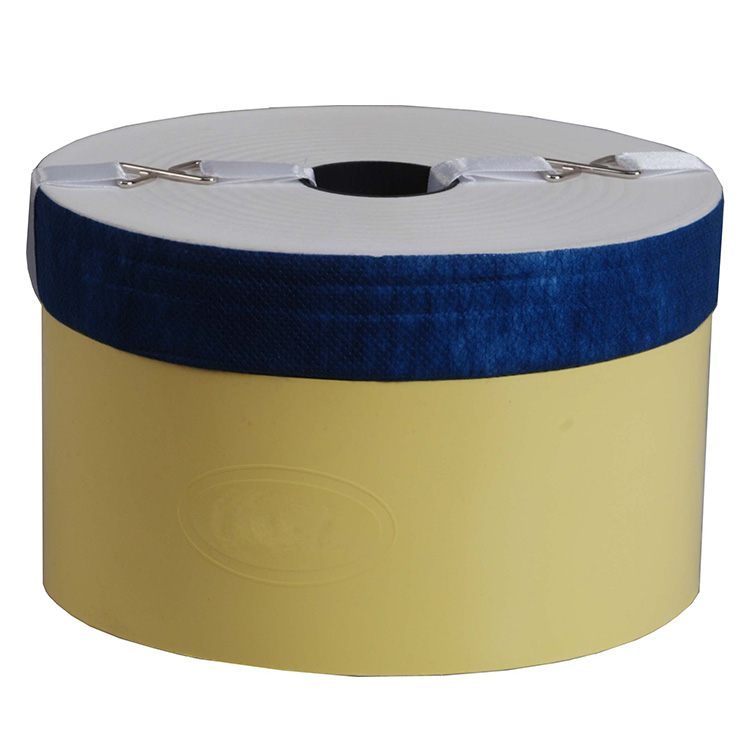The Importance of Contaminant Removal in Oil Systems: Focus on Water Glycol Oil Filter Elements
2024-08-12
In the world of industrial lubrication and hydraulic systems, cleanliness is more than just a preference—it’s a necessity. Contaminants in oil can lead to a range of issues, from reduced efficiency and increased wear to catastrophic equipment failures. The water glycol oil filter element is a specialized component designed to keep these systems running smoothly by removing harmful contaminants. This blog will explore the specific types of contaminants that these filter elements target, shedding light on their importance in maintaining oil purity and system integrity.
1. Metallic Contaminants: Protecting Equipment from Wear
Metallic contaminants are among the most damaging particles that can be present in oil. These tiny metal fragments are typically the result of wear and tear within the machinery. If not removed, they can cause further abrasion, leading to increased wear rates and potential system failures. Water glycol oil filter elements are equipped to capture these metallic particles, preventing them from circulating through the system and causing additional damage.
- Common Sources: Bearings, gears, and other metal components that experience friction during operation.
- Potential Damage: Accelerated wear of moving parts, leading to premature equipment failure and costly repairs.
2. Water and Moisture: Preventing Corrosion and Oxidation
Water contamination is a common issue in oil systems, particularly in environments with high humidity or where condensation can occur. Water can cause significant problems, including corrosion of metal components, reduction in oil lubricity, and the promotion of oxidation processes. The water glycol oil filter element is specifically designed to remove water from the oil, ensuring that the system remains free of moisture-related issues.
- Corrosion Prevention: By removing water, these filters protect metal surfaces from rust and corrosion, extending the lifespan of the equipment.
- Oxidation Control: Reducing water content also helps to prevent the formation of oxidation products, such as sludge and varnish, which can degrade oil performance.
3. Sludge and Varnish: Maintaining System Cleanliness
As oil degrades over time, it can form sludge and varnish—sticky, viscous substances that can clog filters, restrict oil flow, and impair heat transfer. These oxidation byproducts are particularly problematic in high-temperature systems. Water glycol oil filter elements are designed to trap these contaminants, keeping the oil clean and ensuring that it continues to flow freely through the system.
- Filter Clogging: Sludge and varnish can accumulate in filters, reducing their effectiveness and leading to increased maintenance needs.
- Heat Transfer Efficiency: Varnish deposits can insulate heat exchangers, reducing their ability to dissipate heat and leading to overheating issues.
4. Acidic Compounds: Neutralizing Harmful Byproducts
Acidic compounds in oil are often the result of oxidation or contamination from external sources. These acids can corrode metal surfaces, leading to leaks, weakened structural integrity, and potential system failures. Water glycol oil filter elements play a crucial role in neutralizing these acidic compounds, either by removing them directly or by incorporating additives that mitigate their corrosive effects.
- Corrosion Control: By removing or neutralizing acids, these filters protect metal components from the corrosive effects of acidic byproducts.
- Extended Equipment Lifespan: Reducing acid levels in oil helps to preserve the structural integrity of the system, prolonging the life of the equipment.
5. Microbial Contaminants: Safeguarding Against Biodegradation
In systems where water and oil coexist, microbial contamination can occur. Bacteria, fungi, and algae can thrive in such environments, leading to biodegradation of the oil and the formation of corrosive byproducts. Water glycol oil filter elements are often equipped with antimicrobial features or are used in conjunction with biocides to eliminate these microbial contaminants, ensuring that the oil remains stable and free from biological degradation.
- Microbial Growth: Microbes can multiply in the presence of water and oil, leading to the formation of biofilms and the production of corrosive organic acids.
- Biodegradation Prevention: Filter elements help to control microbial contamination, preventing the breakdown of oil and the associated problems it can cause.
Conclusion
Water glycol oil filter elements are vital for maintaining the purity and performance of oil in industrial systems. By effectively removing metallic particles, water, sludge, acids, and microbial contaminants, these filters protect machinery from damage, reduce maintenance costs, and extend the lifespan of the equipment. Understanding the types of contaminants that these filters target can help operators and maintenance teams ensure that their systems remain clean, efficient, and reliable. Regular monitoring and replacement of filter elements are key to achieving optimal system performance and longevity.



